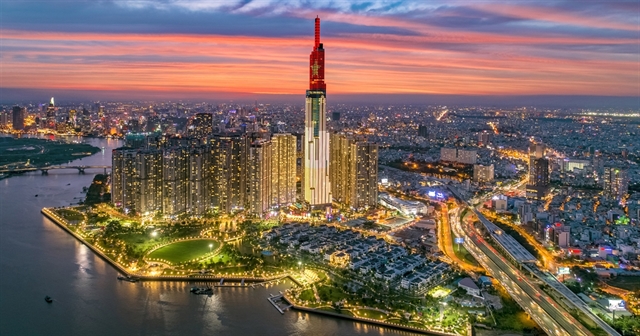Viet Nam has become the fastest growing nation brand in the Brand Finance’s ranking this year, with its brand value skyrocketing by 29 per cent to US$319 billion.

Viet Nam has become the fastest growing national brand in Brand Finance’s ranking this year, with its brand value skyrocketing by 29 per cent to US$319 billion.
The country climbed nine places from last year to 33rd in the Nation Brands 2020 list of the world’s 100 most valuable brands compiled by the UK independent branded business valuation and strategy consultancy.
According to Brand Finance, Viet Nam, which has recorded staggeringly low COVID-19 cases and deaths, has emerged as one of the top locations within the Southeast Asian region for manufacturing and has become an increasingly attractive destination for investors, particularly from the US, that are looking to relocate their China operations following the fallout from the US-China trade war. Recent trade deals with the EU are further supporting the growth of the nation.
“Emerging as a Southeast Asian haven for manufacturing, Viet Nam defies the global trend, with its brand value up an impressive 29 per cent,” Brand Finance noted.
Brand Finance measures the value of national brands based on three pillars: goods and services, investment, and society.
According to Brand Finance, the 100 most valuable nation brands in the world have suffered monumental losses to their brand value because of the COVID-19 pandemic, amounting to $13.1 trillion.
This year has put the nations of the world to the test – from the economic impacts of COVID-19 on nations’ GDP forecasts, inflation rates, and general economic uncertainty, to diminished long-term prospects. Brand Finance estimates that the total brand value of the top 100 nation brands dropped from $98 trillion in 2019 to $84.9 trillion in 2020, with almost every nation feeling a significant impact of the health crisis on their respective economies.
David Haigh, CEO of Brand Finance, said the downward trend of nearly all the world’s most valuable nation brands was unsurprising, given the year we were currently experiencing. With COVID-19 contributing to the recent rise of protectionism, we may see a reversal of the economic growth brought about by globalisation. Having said that, optimism had certainly prevailed, with forecasts looking less dire than initially predicted, and with the announcement of a working vaccine beginning to be rolled out, the future was certainly looking brighter. — VNS





